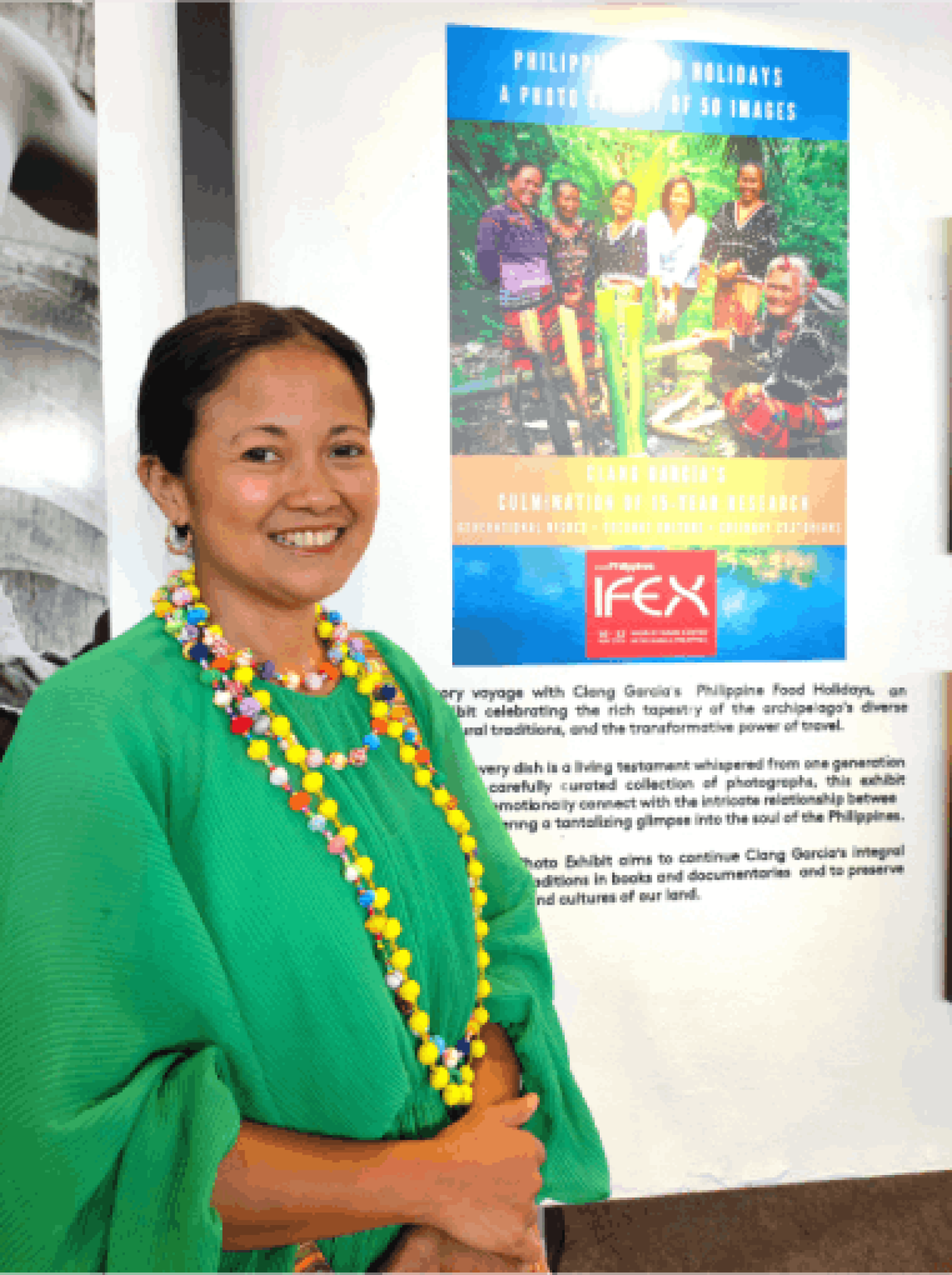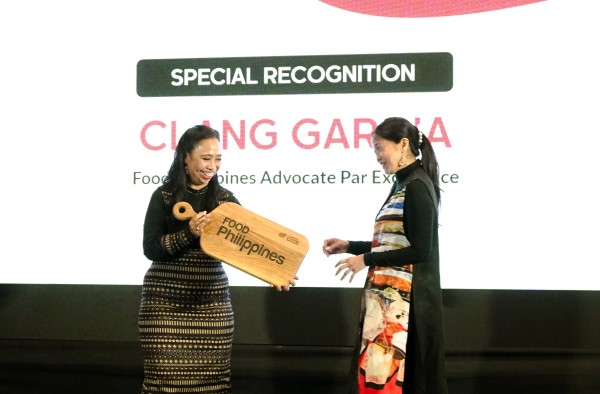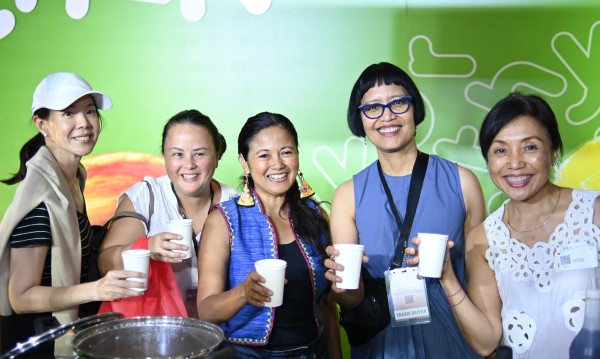How to Make your Brand Stand Out
Being a newbie in any industry is tough, most especially in the cutthroat world of food and bever-ag...

July 18, 2024
We sat down with Philippine Food Holidays author and well-loved food heritage tourism proponent Clang Garcia and learned her takes on life’s journeys and legacy of Philippine food and culture. She is also the new FOODPhilippines Advocate par Excellence for the Center for International Trade Expositions and Missions (CITEM).
“Like, I know nothing.” A tad scary when someone who has been doing something professionally for more than a decade makes this statement. And yet, this is exactly how Clang Garcia, one of the country’s leading culinary heritage food advocates, approaches new experiences.
In her 15 years of conducting research on Filipino food, Clang makes it a point to take it all in whenever she travels. But, not before she empties herself for new information to fill her senses. It is a recipe she follows to give herself that space of wonder and thrill of discovery whenever she sets out on a food journey. And her travels have taken her places all over the Philippines. Given her years in the industry, one would think she has seen all that there is to show about food. Maybe so; however, for Clang, understanding food is as much about immersing in the people, the culture, and even breaking stereotypes.
With her last trip to Isabela de Basilan, which is part of the Zamboanga Peninsula, she is more committed than ever to break the stigma long associated with Muslim Mindanao. Having seen and met with different indigenous, ethnolinguistic groups like the Yakan and Tausug, she found them to be the most beautiful and soulful people whose plethora of rich cuisines, cooking techniques, and overall culinary culture are a must share. So, she did. And the conversation started to shift.
No stranger to the tourist impressions about Mindanao prior, sharing her Mindanao experience to the public is one of the significant moments in Clang’s heritage food advocacy. “I think that one changed the game for me, because the moment I posted about my trip, suddenly I began getting messages from people I didn’t know personally, random people.” These turned out to be international authors and chefs, who began to ask her, “Can you take me where you go?” She adds, “Suddenly, they don't care about the destination, they just want to experience what you experienced.”
To be able to change perceptions for the better is a gift that Clang Garcia does not take for granted. Admittedly, even and probably because of her travels around the country, she has been befuddled by how to best get her message across. Understandably so, as Filipino food is both simple and diverse, familiar and unique, which leads one to really ask where to start.
“How do I explain Filipino food? And then I realized, no one can profoundly explain Filipino food until we immerse ourselves in the lives of the indigenous cultural communities. Because it all started with them. We're just strangers in their lives, really.”
Serving Filipino pride and history
“Firstly, it's about creating awareness. Because in the absence of awareness, there will be no sense of appreciation. And, if you don't have that sense of appreciation, it will never elicit pride. So, for me, that's the order. Once you're ignited by all this wonderful information, then you go out and research.”

Clang Garcia on stage with IFEX Philippines Project Director Rowena Mendoza at Media Salu-Salo last April 26, 2024
If culture and pride are subjects, then travel serves as the vast gastronomy academy where Clang believes is how we can really learn these important lessons. From the islands, mountains, and rice fields, there is no limit to what we can gain from observing and honoring the way of life of the local ancestral folks. These are the very people she sees as the best teachers to learn about the country’s culture and history with food as their medium. After all, food is a universal language that is relatable and cuts across nationalities.
When asked about the challenges of championing Filipino food to others, she sees a bit of learning and unlearning. Naturally, Filipinos should be the authority when it comes to local food. With Filipinos scattered across the globe, it does beg the question why Filipino cuisine is not as popular as it should be. To this, Clang explains how many of us have a certain disconnect when it comes to the value of Filipino food. “I believe that the best cuisine is eaten at home. For us Filipinos, nothing really beats a lovingly prepared home-cooked meal. However, we also see pagkaing bahay (home food) as something lacking because it was not prepared in a fancy or expensive way. So, we don’t brag about it.”
Passion for integrity
With almost everything accessible online and a more democratized travel society in recent years, the narrative has definitely changed for the better. One indication is readily finding Filipino food products in mainstream food stores, seeing Filipino restaurants side by side with fine dining establishments abroad. According to Clang, we now realize that Filipino food and food exports can be transformed into drivers of economic growth, may they be through culinary heritage tourism or creating food that can easily be given as pasalubong (souvenir). Her latest recognition from CITEM as an Advocate par Excellence highlights this cause, adding that “I am deeply honored to be part of IFEX Philippines because it’s an international event where we celebrate our roots. More people around the world can experience our heritage through packaged food that can be exported at any given time.” Adding that any opportunity to be aligned with a mission to promote Filipino food and local ingredients will always be a win for our heritage. She does stress the importance of anchoring these efforts to the very communities from where our food comes from.
“Community-based culinary tourism is key because change will organically include their lowest members. If somehow, you cannot be a channel in improving their way of life in one way or another, then you can never say it works; especially, if you put them in the tourism context. For me, I want them to be part of tourism while respecting their culture.”
A solid sense of integrity is part of the reason why Clang Garcia remains a relevant and influential figure in Philippine food. Working against cultural commodification in an age of fleeting interests and viral economy, where many succeed with every act being weighed in currency, she genuinely wants Filipino communities to sustain themselves, their families while celebrating their culinary and cultural heritage. Whenever she posts something online, she does so to make a lasting difference without needing compensation for it. When an experience makes her happy, she shares it and if it doesn’t, she does not post about it. Sometimes, it is that simple for her.

Sharing her expertise at an IFEX Kitchen cooking demo with a comfort food recipe at theMarketplace of IFEX Philippines 2024.
And part of life’s simple pleasures for her is a serving of good soup or sabaw, regardless of time and weather. True to form, she makes sure to use natural souring agents when craving for the uncomplicated comfort food, particularly if it means helping farmers to continue growing local.
Fitting excellence
The Center for International Trade Expositions and Missions (CITEM) held its IFEX Philippines 2024 Media Salu-Salo last April 26, 2024 at the Philippine International Convention Center. Here, members of the media were given first access to the winners of the Katha Awards for Food, who were recognized that evening. An integral part of the event was a panel discussion about the export food industry, which was moderated by Ms. Clang Garcia. The media event also saw CITEM conferring the first set of FOODPhilippines Advocates par Excellence to Ms. Garcia alongside food content creator Abi Marquez.
Check out these food fusions between Filipino and Middle Eastern cuisines
The unending quest for healthy and sustainable food amid changing lifestyles
A quick look at the Philippine food staple often getting a bad health rap